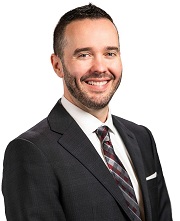Below is our recent interview with David Barrick, former elected official and public administrator in Canada:

Q: Can you tell us something more about yourself?
David Barrick: I am a public administrator by trade and believe in the value of a highly functioning government. My work with a number of municipalities, shrinking budgets, mitigating impacts of the pandemic, managing teams of hundreds of people, and serving on every kind of board have solidified my determination to be the best leader possible. I adopted the mindset as a child to always be curious, always push myself to be better today than I was yesterday and to strive to make a difference in the world, in big and small ways.
I also have that drive for entrepreneurship and have launched a number of successful companies.
Q: You discuss being the best possible leader you can be, what does that mean to you and how do you get there?
David Barrick: Leadership, to me, boils down to a willingness to collaborate. Collaboration, at its core, demands for you to take charge when needed, and step back and listen when needed. Collaboration is more refined negotiation, often between colleagues but sometimes across political aisles and industries. It means harnessing your years of expertise, summoning all your knowledge of human interaction, and using them to create the best possible scenario. Additionally, egos have to be checked at the door for anything to be accomplished. I believe a willingness to collaborate is one of the most important and underappreciated aspects of leadership. I learn something new every single day, about myself, about leadership and about the amazing people with whom I collaborate.
Q: It’s clear that you love being a public servant because of the ability to spur positive change, but what are some of the day-to-day aspects of the job?
David Barrick: I spent over a decade as an elected official analysing unique challenges, preparing information, finding solutions, and making recommendations that encouraged action. If you consider my responsibilities when I served as administrative leader of the City of Brampton: 6,000 employees with an operating budget of $750 million. It’s a massive, multidimensional and diverse undertaking, including managing a number of departments like public works & engineering, community services, legislative services, corporate services, transit, planning & economic development, fire & emergency services, stakeholder relations, etc., inclusive of the many business units.
There is a lot of data to sort through, what some people would consider tedious, but that allows public administrators to know if the municipality is on-point with purpose and budget. Things like key performance indicators, operational reviews, and assessing the functioning of the government as a whole and specific departments in an effort to increase transparency and efficiency.
The position also requires that administrators liaise between key decision makers and employees/constituents.
It is, in many regards, a balancing between responsibilities; multitasking to the nth degree.
I have an analytical brain, but also love people, so public administration is a natural fit. It also allows for me to explore the broader impacts of innovation within organisations.
Q: Can you provide an example of your innovation in action?
David Barrick: I spent so many years in government and so much time in meetings that I implemented an agenda management system that increased meeting efficiency, accountability and transparency—information was made readily available to the public. Government is meant to work for constituents, whether in municipalities or nationally.
Activate Social Media:


